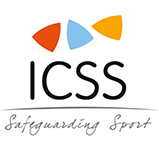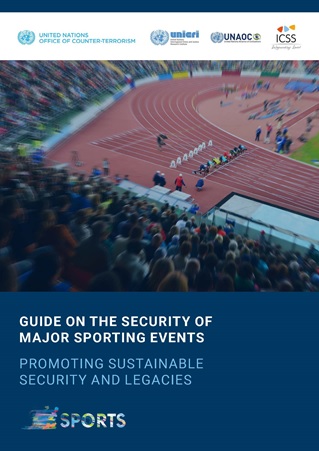ICSS, UNOCT, UNAOC and UNICRI release Global Guide for Policy-Makers to protect Major Sporting Events
In a major step forward in the fight to keep Major Sports Events (MSEs) safe and secure against constantly evolving threats posed by terrorism and violent extremism, the United Nations Office of Counter Terrorism (UNOCT), United Nations Interregional Crime and Justice Research Institute (UNICRI), the United Nations Alliance of Civilizations (UNAOC), and the International Centre for Sport Security (ICSS) launched the Global Guide on the Security of Major Sporting Events: Promoting Sustainable Security and Legacies.
The launch took place in the context of the Second Counter-Terrorism Week held at the United Nations from 21 to 30 June 2021, at the presence of high-level representatives of governments, international and continental sport federations, as well as intergovernmental and non-governmental organizations.
The first-ever Guide was developed through a structured process of consultations with experts and representatives from international organizations, sport bodies and UN Member States, which started in March 2020.
The Guide represents one of the milestones of the “Global Programme on the Security of Major Sporting Events, and Promotion of Sport and its Values as a Tool to Prevent Violent Extremism”, an initiative led by the UNOCT, in partnership with UNICRI, UNAOC and the ICSS, and in consultation with the United Nations Counter-Terrorism Committee Executive Directorate (CTED), and with the contributions of Members States, international and regional organisations such as INTERPOL and the Council of Europe, sports associations, the business sector and academia.
The programme is supported by the State of Qatar, the People’s Republic of China through the United Nations Peace and Development Fund (UNPDF) and the Republic of Korea.
The 195-page Guide, which will be available in all six United Nations official languages, represents a significant step forward in the advancement of policies to mitigate risks to eventual targets in the context of major sporting events.
As such, the Guide represents the most comprehensive in-depth analysis of the political, social, and financial dimensions for consideration by key decision-makers for the security elements of major sporting events to date.
Mohammed Hanzab, Chairman of ICSS, said: “This Guide crystalizes the experience of generations of policy and decision-makers, and their visions on how to plan the security of major sporting events, including with regard to legacy factors, sustainability and cooperation across sectors. It provides an exhaustive overview of all the forms of support and mutual assistance available within the international community to protect such events as a common good across nations, as a catalyst for change and a staging area for global citizens.”
Massimiliano Montanari, Chief Executive Officer of the ICSS, said: “Through the Guide, we wanted to deliver a document able to inform and inspire all those who will be responsible for making the main decisions on the policy reforms and structures to be put in place, the legislations to be adopted, the international agreements to be stipulated, and the resources to be allocated to plan a successful major sporting event and its legacy”.
Finally, the Guide provides hosting nations with a reference document showcasing all the forms of technical assistance available at the international level, as provided by international and regional organizations such as the UN, INTERPOL, the Council of Europe and the WHO, as well as sport bodies and specialized stakeholders like the ICSS.

